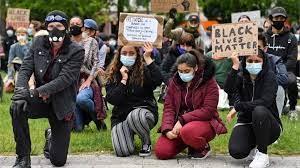Introduction:
Racism is a pervasive issue that affects societies across the globe, including the United Kingdom. Over the years, the UK has seen significant cultural and ethnic diversity, leading to interactions and integration between various communities. However, it is essential to examine the prevalence of racism towards specific groups, such as the Pakistani community, to understand the challenges faced by these individuals. This essay aims to explore the commonality of racism towards Pakistani people in the UK, shedding light on historical contexts, manifestations, and initiatives taken to address this issue.

Historical Context:
To comprehend the current state of racism towards Pakistani people in the UK, it is crucial to acknowledge historical factors that have shaped these dynamics. The migration of Pakistani individuals to the UK dates back to the mid-20th century when they were encouraged to fill labor shortages. However, the initial reception was often hostile, with instances of discrimination and prejudice. This early discrimination created a foundation for the manifestation of racism against Pakistani people in the years to come.
Manifestations of Racism:
Hate Crimes and Violence: Pakistani individuals in the UK have been victims of hate crimes and racially motivated violence. Reports of physical assaults, verbal abuse, and property damage targeting this community have emerged over the years. These incidents reflect the presence of racial animosity and prejudice.
Employment Discrimination: Racism can also be observed in the job market, where Pakistani individuals may face barriers to equal employment opportunities. Stereotypes and bias may result in discriminatory practices during the hiring process, limiting career prospects for this community.
Housing and Accommodation: Racism in the form of housing discrimination is another area of concern. Pakistani individuals have reported facing difficulties in securing accommodation due to their ethnicity. Discriminatory practices by landlords and real estate agents can hinder access to suitable housing options.
Institutional Racism: Pakistani people may encounter systemic racism within various institutions, including the education and criminal justice systems. Biases, stereotypes, and unequal treatment can perpetuate disadvantages and hinder social mobility for individuals within this community.
Microaggressions and Everyday Racism: Racism is not always overt; it can also manifest through subtle forms of discrimination. Microaggressions, such as racial slurs, stereotypes, or exclusionary behavior, can create hostile environments for Pakistani individuals, impacting their well-being and sense of belonging.
Initiatives to Address Racism:
Legislation and Policy: The UK has implemented legislation to combat racism and discrimination, including the Equality Act 2010, which provides legal protection against racial discrimination in various areas of life. Additionally, policies promoting diversity and inclusion aim to address systemic racism within institutions.
Advocacy and Awareness: Various organizations and advocacy groups work towards raising awareness about racism and promoting equality. They strive to challenge stereotypes, promote dialogue, and create safe spaces for discussions on racism and its impact on Pakistani communities.
Education and Cultural Exchange: Educational initiatives play a vital role in fostering understanding and combating racism. Intercultural programs, diversity training, and inclusive curricula can promote empathy and reduce prejudice among individuals of different backgrounds.